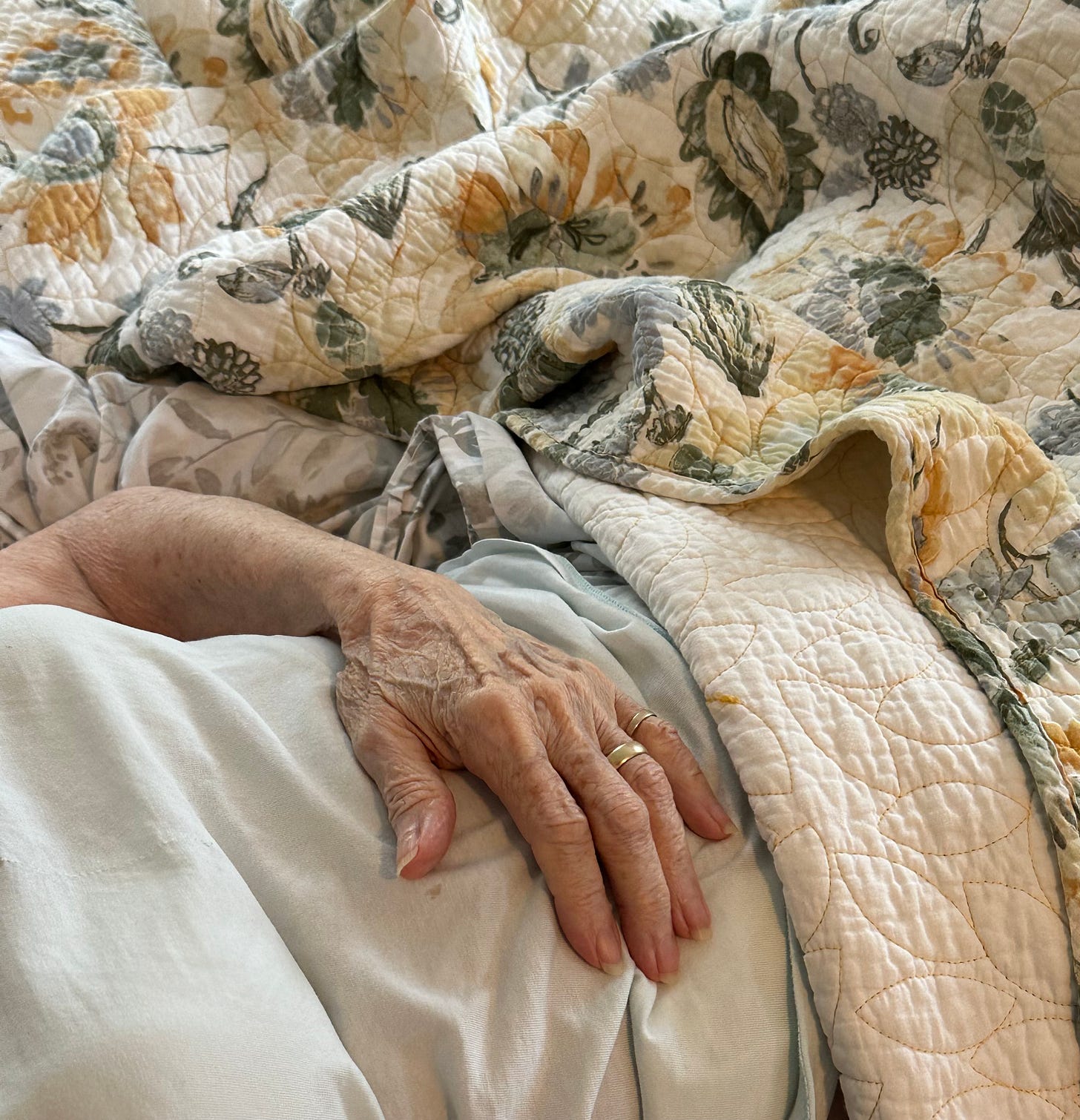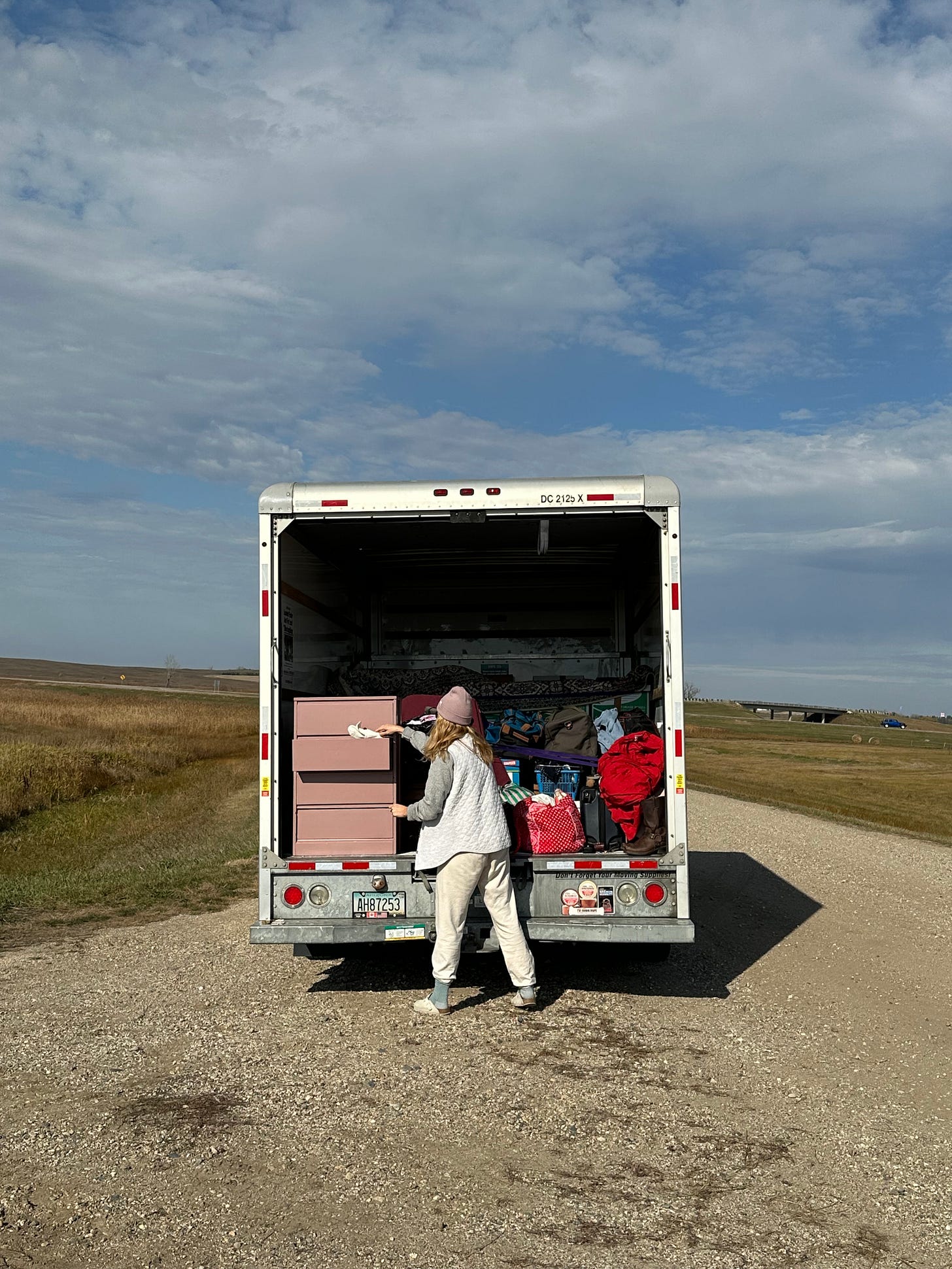Endings
It was warm in Maine this weekend. Sunlight made the vibrant leaves glow. The ocean continued its rhythmic lapping. And the whole state held a collective breath as the hunt for Robert Card eventually ended at a dumpster in Lisbon on Friday evening.
Last week I visited my dad’s parents in Michigan. They are dying, each in their own way. My grandfather, reclined in his Hospice bed, babbled incoherently in response to a voice only he could hear. My grandmother asked me, for the sixth time in thirty minutes, what I do to make my hair so beautiful. I sat at the foot of her bed and stared at her veins, thick and snakelike through her translucent skin. A thin wisp of armpit hair peeking out.
Willow and I drove a U-Haul from Bozeman, Montana to Portland, Maine earlier this week. There were thirty minutes left in our 35 hour drive when Willow stopped the music to read me the headlines; the sound of our fifteen foot truck, a roaring backdrop to her steady voice. Police cars with spinning blue lights sped past us on I-95 North, their destination: Lewiston. This kind of thing never happens in Maine. Is that what we’ll say about every pocket of our country as the list of town names that are shorthand for horrific massacre continues to grow? Sandy Hook. Uvalde. Lewiston.
My dad refers to the mental state in which both his parents currently reside as “Loopy Land.” After visiting Loopy Land last Tuesday afternoon, we went to see Lucinda Williams in Ann Arbor. She sang “Bus to Baton Rouge”. This song is about her grandparent’s house and the last time she ever walked through it. I kept picturing my own grandparent’s house in Dexter, Michigan. They sold it years ago, and I don’t remember the last time I was there. But in the theater I was hit with grief for this old house, and I became consumed by the fact that with every passing second I’m moving further away from the last time I visited it.
Lucinda sang: “There was this beautiful lamp I always loved / A seashore was painted on the shade / It would turn around when you switched on the bulb / And gently rock the waves.”
I realized that, in the story of my life, the character that was my grandparent’s house on Purple Martin Way has died. I always think of houses as characters, their unique qualities actively shaping the stories inside them. The more time that passes between now and my memories in that house, the harder they are to conjure. I have to find old photographs to remember the quilt hanging on the wall above the stairs or that the refrigerator had a facade of fake wood to match the cabinets. And once my grandparents die, another wall of this memory house will be demolished, their memories of their old home evaporating into nothing.
One of my favorite Substackers is Anna Fusco who writes “Unsupervised”. In her most recent letter, she wrote: “It was not fun to walk around with my ghosts, despite what my positive memories wanted me to believe. I think this is because inherent in ‘revisiting’ is the palpable reality that everything ends, the reminder that soon the way you are experiencing your present moment will be the past; it too will end.”
The 18 victims of Robert Card’s assault rifle were going about their days, business as usual, until they weren’t. And here we are going about ours because we have no choice, because the next endings are already happening. The hours passing, the ocean lapping, the smiles returning.







